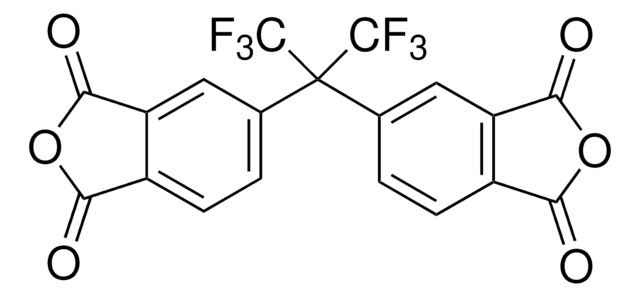523755
2,3,5,6-Tetramethyl-p-phenylenediamine
electronic grade, 99% trace metals basis
Synonym(s):
3,6-Diaminodurene
About This Item
Recommended Products
grade
electronic grade
Quality Level
Assay
99% trace metals basis
mp
150-155 °C (lit.)
SMILES string
Cc1c(C)c(N)c(C)c(C)c1N
InChI
1S/C10H16N2/c1-5-6(2)10(12)8(4)7(3)9(5)11/h11-12H2,1-4H3
InChI key
WCZNKVPCIFMXEQ-UHFFFAOYSA-N
Looking for similar products? Visit Product Comparison Guide
Related Categories
Application
Other Notes
Signal Word
Warning
Hazard Statements
Precautionary Statements
Hazard Classifications
Eye Irrit. 2 - Skin Irrit. 2 - STOT SE 3
Target Organs
Respiratory system
Storage Class Code
11 - Combustible Solids
WGK
WGK 3
Personal Protective Equipment
Choose from one of the most recent versions:
Certificates of Analysis (COA)
Don't see the Right Version?
If you require a particular version, you can look up a specific certificate by the Lot or Batch number.
Already Own This Product?
Find documentation for the products that you have recently purchased in the Document Library.
Customers Also Viewed
Our team of scientists has experience in all areas of research including Life Science, Material Science, Chemical Synthesis, Chromatography, Analytical and many others.
Contact Technical Service










